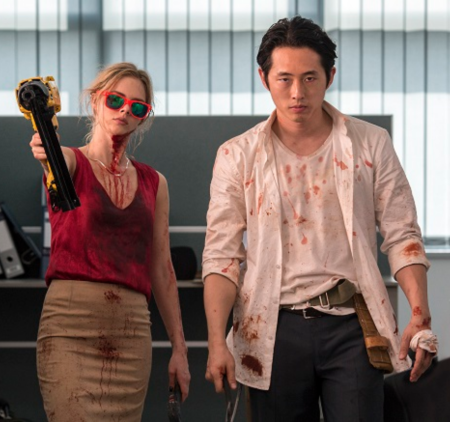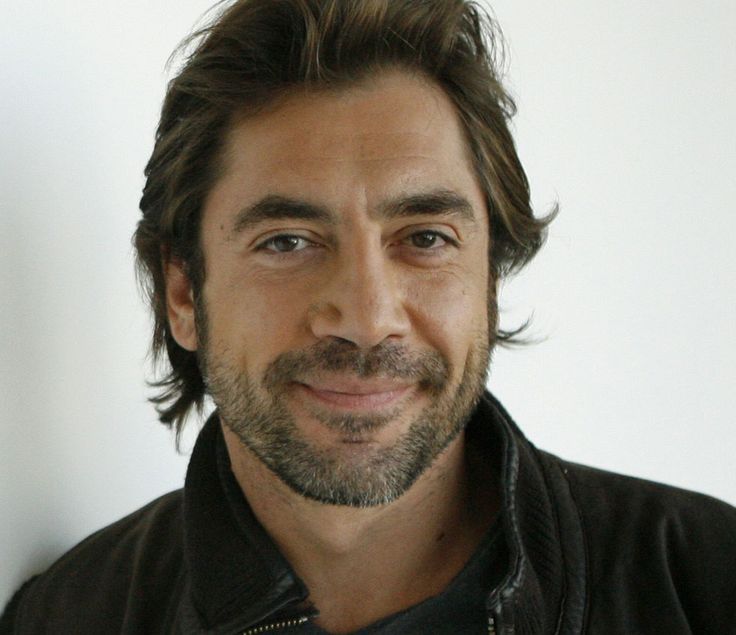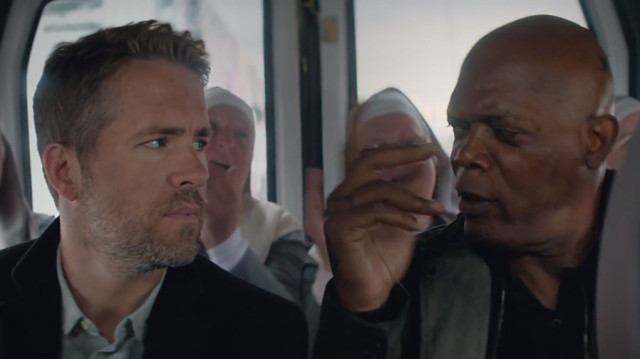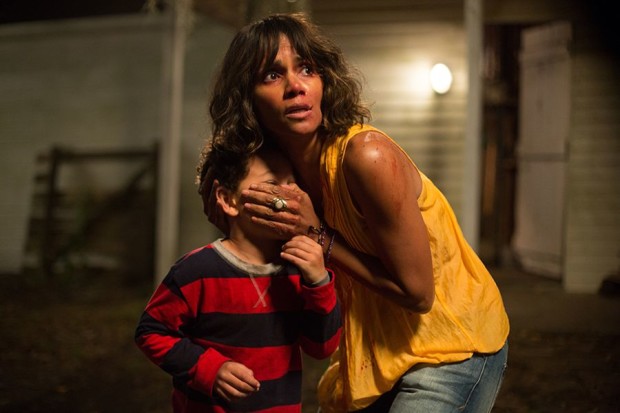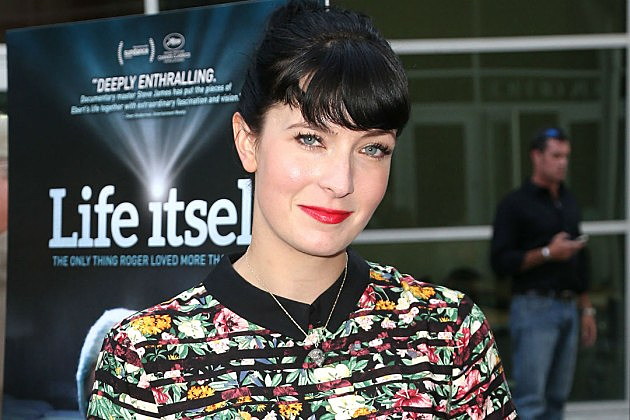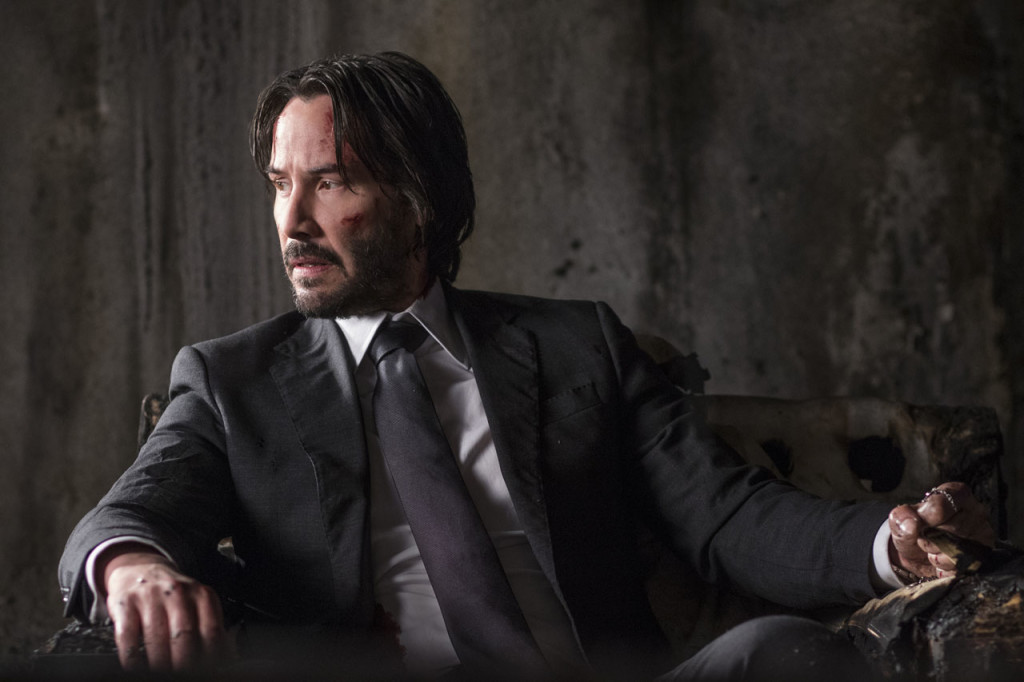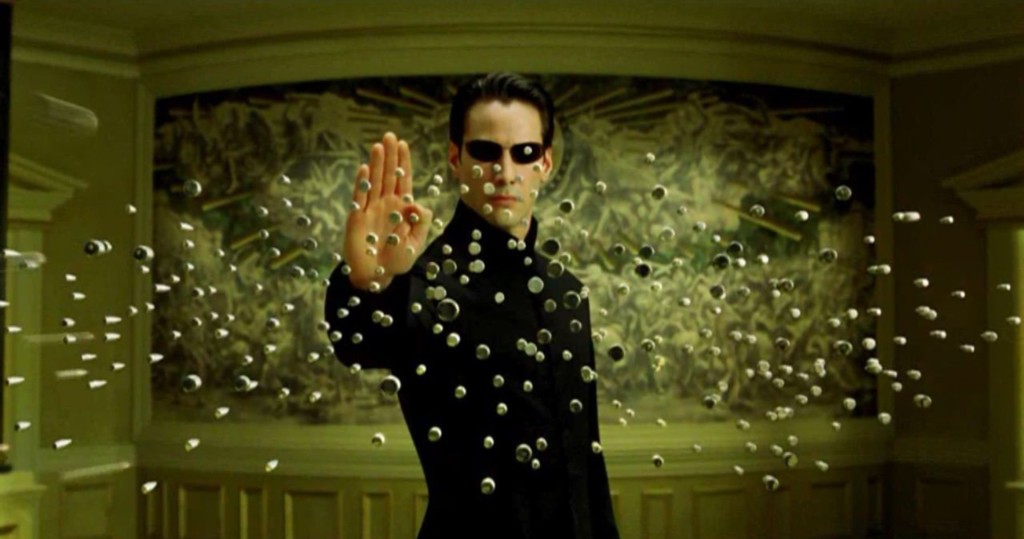That’s right. No Amateur Offerings this weekend.
I’m playing with this idea of doing it every other weekend, making it more of an event. But that could change at any moment. Also, for those interested in contributing to Monday’s review, I’m watching “Mayhem.” The well-reviewed film is out in theaters and on Digital. So you can rent it right now. I think Mayhem represents a new tasty avenue for spec screenwriters.
Meanwhile, they’re making a NEW Star Wars Trilogy with Rian Johnson. As in, NO SKYWALKERS.
Disney must loooooooove The Last Jedi. Either that or this is the reward for being the only Star Wars director that Kathleen Kennedy actually liked. I have to admit, I’m skeptical. The biggest achievement of Star Wars was its world-building. It created an entire galaxy of planets and ships and aliens and cool characters. To try and do that all over again from scratch is a huge undertaking.
When I watch The Last Jedi trailer, I don’t see any world-building at all. It’s all stuff we’ve seen before. I’m hoping Disney got brave and they’re hiding all the new stuff for the film. That’s the only thing that makes sense to me. Whatever the case, this upped my interest in The Last Jedi ten-fold. An entire new trilogy is resting on it. Talk about stakes. Rian Johnson said it best on his Twitter. “Obviously I hope you like The Last Jedi. But man now I REALLY hope you like The Last Jedi.”
Genre: Thriller/Drama
Premise: A Vietnam POW struggles to survive captivity to seek revenge on the group of soldiers who betrayed him and left him for dead.
Why You Should Read: Been at this incredibly rewarding and gut-punching craft for seven years now. I’ve had my share of contest placements and even turned one of my ten scripts into a multi award-winning book, however, I’m still on the hunt for that big breakthrough. For this script I stepped way out of my comfort zone and broke some of the so-called “rules.” This is a past/present script that is part The Revenant, part Apocalypse Now, and part Saw. Would love the invaluable feedback from the Scriptshadow community to make it the best it can be.
Writer: John Avrai
Details: 95 pages
We had a tie in last weekend’s Amateur Offerings.
And that meant the onus was on ME to pick a winner. This is a good time to take you into the mind of a script-reading madman, because I think the way I approach which script to read is similar to how most people in the industry would choose between two scripts, all else being equal.
The primary determining factor is, which concept do I like better? In this case, I felt both concepts sounded interesting. And that led me to determining factor number 2. You guys are going to hate me for this but I promise you it’s something most producers and agents use in their decision-making process as well. That’s right. Page count. One script was 105 pages. The other was 96. The latter would save me 7-10 minutes of time in my evening. Game, set, match. My Sojourn in Hell.
That’s not to say Dark Horde will never get the call. It could come up in a Rematch Week somewhere down the line. But right now. It’s all about the sojourn, baby. Even if I don’t yet know what sojourn means.
Might need to change that title.
Okay.
Plot summary.
69 year-old Eiten Comacho has just flown into town for a Veterans Benefit. Camacho, a badass soldier in the Vietnam War, isn’t off the plane more than five minutes when he’s approached by a woman who claims to be associated with the proceedings. She guides him towards a parking lot where he’s quickly drugged and thrown in the back of a van.
When he wakes up, he’s with three members of his old infantry unit back in Vietnam. There’s Whybrow, a chickenshit wannabe weatherman, Ox, a former tough guy who’s since found the lord, and Emmit, Ox’s dumbass little brother. All the men have been cuffed and restrained.
They’re soon met with the sight of the woman who drugged and kidnapped them.
Before we can work out what’s happening, we flash back to Nam, where we meet Fort, the weakest member of their outfit – a man so incompetent (he can’t even do one pushup) that the others are routinely forced to pick up his slack. It gets so bad that Comacho beats the hell out of Fort in the hopes that he gets stuck in medical and they never have to see him again.
From there, we cut back and forth between the past and the present, learning more about how the guys bully Fort, and more about this mysterious woman who’s torturing them. Eventually we find out that Camacho killed a local Vietcong woman, and to make sure the word never gets out, he attempts to kill Fort as well. But Fort survives and is later captured by the Vietcong.
Back in the present, the mysterious woman drops a bombshell on all of them. Their shitty lives since Nam (they’ve all been victims of a string of bad luck) have been meticulously orchestrated by her. She made sure Camacho went to prison for 30 years. She made Ox’s business fail. She sabotaged Whybrow’s weatherman job. She’s the sole source of their miserable lives.
Who is this woman? Why is she such a monster? Will she kneel for the anthem on Sunday? And what ever did happen to poor Fort, who barely escaped Camacho’s murder attempt that day? Inquiring minds should check the comments section for answers.
On Wednesday, I complained about a script that was too predictable.
So before I do anything, I have to give props to John for writing a script that, for 60 pages, I had NO IDEA where it was going. When he says he broke rules, he wasn’t lying. This was a wild one.
For starters, there’s no protagonist! Going the no-protagonist route is extremely risky because audiences want somebody to latch on to. They want to feel connected to someone. We didn’t feel connected to anybody here. I mean, Camacho was introduced first so I thought he was our hero. Yet he’s the most despicable character of the bunch. After I found that out, I was left stranded. Who am I rooting for now? Crazy Torture Lady? Kind of hard to get on board with mysterious torturers. Was Fort our hero? No. For the first 60 pages, we only see him through the eyes of others. Talk about keeping me on my toes!
Despite its unpredictable nature, the script still had an ENGINE. What I mean by an ENGINE is that there was still something DRIVING our interest, our need to keep turning the pages. It’s important I make this distinction because it’s easy to write something unpredictable if you just ramble on aimlessly. But we’re going to lose interest if it’s clear the story isn’t going anywhere. Here, the script still had this mystery of: Who is this woman and why is she doing this? So despite us jumping all over the place and going back to Nam for these crazy flashbacks, I was still driven by the desire to find out what this woman’s end game was.
Another thing I picked on the other day was the writer not doing anything unexpected with the plot. You have to take chances with your plot beats or else the story becomes boring. Here, midway through the script, the crazy woman simply unlocks everybody and gives them access to a machine gun! Our characters could’ve hopped up and killed this psycho right then. It was moments like this where I said, “Wow, I did not expect that!”
So what’s the deal then? Did I like this script?
Here’s the problem with My Sojourn In Hell despite its mysterious setup and consistent risk-taking: It was seeped in anger. Reading the script made me feel sad, depressed, angry. Watching the worst in human beings exploit the worst in other human beings – That’s not my cup of tea. And I get that this isn’t an issue for some readers, which I respect. But, for me, a script has to have a sense of hope SOMEWHERE. I can’t leave feeling like humanity is hopeless. It’s just too depressing.
Even in the torture-porn era, you had the torturer, and you had the person getting tortured. And the person getting tortured was usually good. So you were hoping they were going to somehow get out of this and maybe kill the villain. Remind us that good conquers all. My Sojourn In Hell gave us bad people going after bad people. And so even if I was intrigued by what was going to happen next, I never had someone to root for.
In addition, the final act falls apart. The stuff about one brother secretly fathering the other brother’s son felt kooky. And to add this entirely new character of Lee (who accompanies Fort in a POW camp) with 30 pages to go… it felt like the narrative was unraveling rather than coming together. In a way, Fort becomes our hero. But like I said above, we barely knew the guy. We only saw him through the eyes of others, and usually simplistically. He wouldn’t do a push-up right and people would kick his ass. That’s not how you get an audience to root for a character. We have to get to know him on some level.
Also, I figured out what the twist was with a good 40 pages to go, only because there was literally NO other way it could’ve gone.
With that said, John is a good writer. I’d encourage him to enter Amateur Offerings again with something that’s less of a downer. But that’s just my opinion. What did you guys think?
Script link: My Sojourn In Hell
[ ] What the hell did I just read?
[x] wasn’t for me
[ ] worth the read
[ ] impressive
[ ] genius
What I learned: If you’re a writer who wants to take some big chances with your narrative, really be unpredictable, this is a good way to do it. Have a giant unanswered question/mystery at the center of your story, and the reader will let you bounce around and do a lot more avant-guarde stuff than usual.
The Spec Market has been on life support for awhile now. Some of this is due to things beyond our control – IP Superhero movies taking over the bulk of high-budget studio output (gone are the days of original titles like Men in Black). But an equal amount of blame should be placed on our shoulders. We haven’t been writing good screenplays. I mean, here are the top 10 non writer-director non-true-story spec scripts turned movies of 2017.
Girls Trip $115 mil – 89% RT
The Hitman’s Bodyguard $75 mil – 39% RT
Happy Death Day $53 mil – 70% RT
47 Meters Down $44 mil – 54% RT
Fist Fight $32 mil – 26% RT
Kidnap $30 mil – 36% RT
Life $30 mil – 67% RT
The House $24 mil – 16% RT
Wish Upon $14 mil – 17% RT
The Founder – $12 mil – 83% RT
When your fifth biggest spec-turned-film of the year is FIST FIGHT??? The system’s, shall we say, down for the count. I mean, imagine having to watch all of these movies in a row. It’s the fast food equivalent of eating luke warm chicken McNuggets, a stale shell taco from taco bell, mealy orange chicken from Panda Express, a six inch dry turkey sub no mayo from Subway, a day old chocolate donut from Dunkin Donuts, just the sauce from KFC’s latest tangy chicken coating offering, a Jr. Whopper, anything off the Long John Silver menu, a Domino’s Pizza hot wing, and a chili cheese dog from Wienerschnitzel, all in a row.
Man that analogy was WAY too specific. But you get the point.
Why have spec scripts gotten so bad? Well, remember that the big dogs, the David Goyers and David Koepp’s of the world, are pulling in 7 figures for assignment work, which means they’re not bothering with spec scripts. This leaves the bulk of the spec playing ground to newbies and low-rung screenwriters, those whose understanding of the craft is still in the early stages. Hence, they’re not as likely to write something great.
Another problem is that the better low-rung writers like to write in prestige genres (read: unmarketable) like drama, period, and true story. That leaves even fewer good writers who like fun popcorn genre material. I mean, let’s be honest. A movie like Kidnap gets made because it’s fast-paced, has an easy-to-understand high stakes premise, and can garner a name actor you can throw on a poster. That’s how all those Liam Neeson thrillers got made as well. But how many writers out there actually want to write Kidnap or The Commuter? Not many. So the pool of writers writing these cheap but marketable premises is few. And the quality of the output is a reflection of that.
The formula for jump-starting the spec market will come in one of two forms. Form 1 is a hot new writer with a super-unique voice: A Quentin Tarantino, a Diablo Cody, a Charlie Kaufman. What writers like this do is they get people excited about spec scripts again. And that has a residual effect on the market. It also inspires other writers to write in a similar fashion, and you have agents and producers trawling through the copycat material to take advantage of this new avenue of getting movies made.
The closest we’ve had to this lately is Max Landis. But Landis’s voice is reflected more in his social media output than his screenplays. We haven’t had a true unique voice game-changing screenwriter in awhile now so we’re due for one. I hope he’s one of you guys. Cause the sooner that writers starts making waves, the sooner the spec world heats up again.
Form 2 is we need two non writer-director spec scripts to be surprise successes at the box office within a few months of each other. It has to be two. If it only happens once, Hollywood will call it a fluke. But twice is the beginning of a trend. This almost happened with the success of spec script, John Wick. But there was no follow-up to make it a trend. Also, John Wick is a weird example, since the first film did reasonably well, but not bonkers well. It was more what they did with the second movie that elevated the franchise, and by then the buzz of John Wick as a spec was long gone.
With the way the industry is being run now, here’s where I’d say you should focus to become the writer of one of these surprise hits. REAL WORLD ACTION. GuyOrGirl-with-a-gun movies (John Wick, Jason Bourne), GuyOrGirl-in-a-car movies (Fast and Furious), Government agency-movies (new takes on James Bond). Or, SOME REAL WORLD VARIATION of these that isn’t out there yet. And that’s probably going to be the most likely avenue for success, since it will be new and fresh.
Here’s why those worlds specifically. Right now, Hollywood’s got its big-budget fantasy and science-fiction slots taken care of. They’ve got superheroes and Star Wars. Those are the most expensive movies to make. So they’re only going to spend all that money if they’ve got intellectual property awareness that’s through the roof. They’re not going to spend it on your unknown 300 million dollar sci-fi movie idea, “Space Wagons in the Milky Way.”
Real world stuff is cheaper to make and due to the way action travels, it’s not as important that the material be based on IP. But guys, there’s a rub to this. I’d go so far as to say a danger in it. Action movies are almost, by definition, generic. Tough guys saying tough things while either shooting a gun or driving a car isn’t interesting. If you’re going to write a great spec script in this arena, it will need to excel in some area. The characters will have to be deeper and more interesting than we’re used to. The set pieces will have to be stuff we’ve never seen before. The concept will need to be clever in some fresh way. The narrative will need to take us in directions we weren’t expecting.
Some of you might be wondering why I’m not mentioning horror. Get Out. Split. Keep in mind that both of those were writer-director specs. So they’re not as applicable. However, you’re right in pointing out that those types of scripts DO sell. The issue is more in how the industry sees these specs. Horror will always be seen as small potatoes. So the amount of money even the biggest horror specs garner will never be enough to jump start the spec market. For that, we need big money sales, and those are more likely to come from higher budgeted films.
The last sleeper arena I’d say could jump start the spec market is a really clever sci-fi premise that doesn’t cost too much (but also doesn’t cost too little). Remember, The Martix was shot for just 60 million dollars. Why? Because their premise cleverly allowed them to shoot 90% of the “science fiction” in real-world locations. If you can come up with a premise like that? Which promises something cool at a reasonable budget, that’s worth exploring. Ditto if it’s fantasy (this is basically what they did with Bright).
Keep in mind that the advice I’m giving here is SPECIFICALLY geared towards selling specs that could then get turned into big movies which would then jump start the spec market. There are other ways to succeed as a screenwriter. For example, if you care more about writing one of Disney’s Star Wars movies than you do selling a script, maybe writing “Space Wagons in the Milky Way” (with a better title, of course) is the route to go. If the script gains some traction and gets in the hands of Disney folks, there’s no reason to think you couldn’t get a meeting with the Mouse House.
Ditto if you want to be thought of for the next Wolf of Wall Street job. Write a big fun Scorsese type movie about flashy subject matter and flashier characters that takes place in one of the previous six decades. Show them that’s your wheelhouse and if the script is good, you’ll get meetings for that kind of stuff.
But if we’re going to jump start the spec market, it’s going to happen in one of the two ways I listed above. It’s up to you whether you want to follow that advice or carve your own parth. Whatever the case, I’m rooting for you. :)
Genre: Post-Apocalypse Drama
Premise: Based on Homer’s The Odyssey – After a fast-acting plague wipes out hundreds of millions of people around the globe, a young man must travel cross-country to deliver the cure to Washington, all while being pursued by mysterious men.
About: This script sold a few years ago to financing company, QED. The writer, Christopher Cosmos, had a pilot in development at the time about Alexander The Great. He also took a stab at the in-development reimagining of Red Sonja.
Writer: Christopher Cosmos
Details: 101 pages
I like the marketing potential of these loose adaptations of classic works. They’re a win-win-win for writers everywhere. Think about it. You don’t have to pay anything because they’re in the public domain. You still get the prestige of being able to use the popularly known title when pitching your work. AND you don’t even need to follow the work that closely. As long as it’s vaguely in the same universe as the original work, you’re good.
Look guys. When you’re a newbie, you’re your own agent, publicist, and manager. Writing the script is half the battle. After that, you have to sell it. This is why you want to think about these things BEFORE you start to write your script, not after. You have to have that conversation with yourself where you say: How am I going to sell this? Will it be easy? What will my angle be?
It’s no different from what major marketing companies do with a Hollywood film. They ask the exact same questions. How do we sell this? How do we make it stand out from the pack? Some movies make their jobs easy, like Thor: Ragnarok. And others make them hard, like Detroit or Wind River.
So before you put pen to paper, be honest with yourself about how hard it will be to get people to read your script. That’s fine if you know it’s going to be hard. But then you’ll have to become a super-salesman when it’s finished. You’ll have to contact more people, enter more contests, yell a lot louder, hustle more intensely. Cause if the concept doesn’t sell itself, it’ll be up to you to sell it. And most writers don’t understand the level of dedication required to get a tough sell through the system.
That’s why when you can say, “It’s a modern day post-apocalyptic drama based on The Odyssey,” – people are going to respond to that. And once you have that, you leave it up to the script Gods. Hopefully, someone with power likes what you’ve done.
Okay, let’s get to The Fall!
26 year old William Emrys is traveling across the Mojave Desert when we meet him. He looks emaciated, beaten down, a first world body in a third world outfit. Something has happened to this man.
We find out what that is, as we learn a plague has whipped across America, killing tens of millions of people, and more every day. William is carrying a vile. In that vile, we’ll learn, is the cure to this disease. Or at least that’s what he’s been told by the dying man who gave it to him.
William’s trying to reach Washington where a scientist is waiting for him. But he’s also trying to get back to his wife in Michigan, who had a baby while William was in Los Angeles for a business trip, which is when this whole thing started.
Meanwhile, some big bad meany named James Washington is following William. We never learn who this guy is or why he and his big bad meany black jeeped friends want to stop William (why would you try and stop a plague cure?) but Mr. Washington doesn’t care about hackneyed plot mechanics. He wants to capture William and take his vile away!
William gets help and shelter from several people along the way, and after a months-long journey, gets to D.C. But before he can deliver the goods, James Washington arrives, standing in his way one last time. Will he stop him? Or will William pull off a miracle and save the world?
Reading The Fall was like reading a long novel. Sometimes things would get good and I’d be pulled in, and other times things would meander and my focus would drift away… before another good sequence would come along and pull me in again. After it was over, the number of times I was pulled away was roughly equal to the number of times I was pulled in.
But here’s why The Fall didn’t win me over. And it’s a common problem with young writers: I WAS TOO FAR AHEAD OF THE STORY. And when I say too far ahead, I mean I was often 50-60 pages ahead of the writer. I always knew where this was going. Every plot beat is something I’ve seen before multiple times.
And when you have a simple narrative like this one – a man traveling across a post-apocalyptic world – that’s the exact type of plot that a reader can get ahead of you on. I knew, for example, he would find shelter with a few people and have deep talks with them. I knew there’d be a woman along the way who he’d be tempted to be with. I knew there would be 3 or 4 stand-offs between him and the bad guys.
I was desperately rooting for something to happen that I wasn’t expecting. And this is something that writers forget. Readers ARE ROOTING FOR YOU. They WANT you to succeed. They want you to write something great. To surprise them. To move them. To give them something they’ve never seen before. Because it makes reading more fun! But those things don’t come easily. You have to work for them. And I kept wanting that plot point to arrive where I was like, “ohhhh, shit, didn’t see that coming.” But it didn’t.
I’ve said this to you before but I’ll say it again. You need to plce yourself in the eyes of reader/audience. You need to ask yourself: “What do they think I’m going to do here?” And then do something different. It’s really as simple as that. And, no, you don’t do it all the time. But you do it enough to keep the audience on their toes.
And that was the thing. I was never once on my toes. — Which is unfortunate because the plot mechanics here are strong. You’ve got a guy with a clear goal. There’s a heavy emotional component, with him wanting to get back to his wife and newborn. And the stakes are sky-high. Humanity’s at stake. But guys, your job isn’t over once you’ve established your plot mechanics. Now it’s your job to give us a story that’s both familiar yet unexpected.
I’ll give you an example from a movie I saw recently. It was called The Big Sick. And it was a romantic comedy. Romantic Comedies are in more danger than any other genre of the audience getting ahead of you due to being the most formulaic genre of the bunch. Which is why I avoided The Big Sick for so long. I thought it was going to be some silly rom-com about the unique challenges of dating someone outside your culture – something we’ve seen a billion time before.
But then, about 30 minutes in, the female lead goes into a coma. And I’m like, what the fuck is going on right now??? And I kept waiting for her to wake up so that we could get back to zany familiar rom-com territory. But it didn’t happen. And eventually I realized the movie was about this guy and his relationship with the girl’s parents, and not the girl. And it was just like… wow. I’d never seen that before. And I’m not saying you need to go to this extreme, but every screenplay is a game between you and the reader. And you don’t want them to get too far ahead of you or they’re going to get bored.
That’s what happened here. Despite a lot of good in this script, it needed more moments of surprise. Had those moments come, this would’ve been a completely different review.
[ ] What the hell did I just read?
[x] wasn’t for me
[ ] worth the read
[ ] impressive
[ ] genius
What I learned: With every sci-fi premise, it’s imperative that you establish the rules. We have this uber-dangerous new age black plague at the core of our story, yet characters routinely interact with each other without any worry of being infected. I needed to know why. At one point, for example, William’s wife’s neighbor, a boy whose entire family was wiped out by the plague, helps prepare dinner for her family. I don’t know about you. But I’m probably not letting Black Plague Boy 2017 knead the dough for tonight’s pizza party.
Genre: Period Thriller
Premise: After World War 2, a former SS Captain and a Jewish woman travel through war-torn Germany to find and kill a Nazi officer.
About: The best thing about starring in a big flashy Hollywood hit is that you now get to explore more challenging and serious roles. Such is the case with Wonder Woman star Gal Gadot, who is rumored to have signed on to Ruin recently. The project will be directed by Justin Kuzel, who’s best known for directing Michael Fassbender in both Macbeth and Assassin’s Creed. The script has been written by relative newbie screenwriters Ryan and Matthew Firpo, and just appeared on the 2017 Blood List.
Writers: Matthew K. Firpo & Ryan Firpo
Details: 89 pages – 1/6/17 draft
Today’s writers took a big chance.
I usually tell writers that if they’re going to write about World War 2, make sure it’s a true story. There have been so many true World War 2 movies at this point, that it’s become an audience expectation. If the audience finds out a movie set in this era is all the result of an overactive imagination, a lot of them will react with, “Well what’s the point of watching it then?”
Certain genres can work with WW2 fiction. Like horror. The B-Movie horror crowd loves zombie Nazi movies, for example. And you can get away with action or thrillers as well. The Brad Pitt tank movie, Fury, is a good example of both. That’s the route today’s script takes, building a revenge thriller after the most devastating war in history. Let’s see if it works.
It’s been a few months since the end of World War 2. Germany is in ruins. The entire country has been bombed into oblivion. The scraps have been divided between the Russians, the Brits, the French, and the Americans.
“The Captain,” is a former captain of a German SS unit. And judging by his demeanor when we meet him, things aren’t going well. The Captain (he’ll remain nameless throughout) is on the hunt for someone named Anton Richter. He plans to kill this man, as well as everyone else in his unit. We don’t know why, yet. But we get the sense that the reason is personal.
After injuring a member of his former team, the man tells The Captain of a Jewish woman named Elsa who was Richter’s “personal whore.” She knows where he is. So off The Captain goes in search of Elsa, finding her just as her head’s being shaved in public for being a “traitor.”
The Captain gets more than he bargained for when Elsa refuses to tell him where Richter is unless she can come with. This man, we will learn, kept her as a prisoner for two years. Got her pregnant. She had a baby that was then taken from her. Which means Richter has her daughter.
The Captain reluctantly allows her to come with, and the two traverse a war-torn Germany where there is no law, no rules, and the country is steeped in sadness and anger, which reveals itself in many forms. When the two finally do find Richter, Elsa is met with shocking shocking news – news, it turns out, The Captain knew all along.
I absolutely loved the first 40 pages of this script.
There were lots of cool things going on.
For starters, I loved how they flipped the script on the hero’s and villain’s introductions. Our hero, The Captain, is introduced heartlessly killing people. Our villain, Richter, is introduced lovingly helping his daughter shake off a bad dream.
Traditionally, newbie writers will go the obvious route and start off with the hero doing something heroic and the villain doing something villainous. The fact that the writers played with that trope let me know immediately this wasn’t going to be an average script.
I really like goal-driven movies with mystery motivations as well. We know that The Captain and Elsa both want to kill Richter. But we don’t know why for over half the script. Adding that mystery component is one more way to keep your reader invested. And adding mystery motivations for BOTH protagonists doubled the interest.
I also love what they did conceptually here. Almost every World War 2 script I read takes place during the war (for obvious reasons). It can become hard, then, to find a new story in that world. So many have already been told. The simple act of moving the timeline several months after the war gave the entire script a fresh feel.
Which leads me to the biggest lesson I learned today – and that is, using a script’s unique subject matter to inform your characters.
One of the hardest things to do in screenwriting is create depth in your characters. So often, we rely on cliches to install depth. And it never resonates because it’s too reminiscent of character tropes we’ve seen before. So here’s a cool thing you can do to solve that problem. Take whatever is at the core of your movie then install that into your characters as well.
So if you wrote Safe House, what you’d do is you’d say, “Well maybe my main character stays inside a metaphorical Safe House.” He never takes any risks in his life. This situation will force him to, for the first time ever, take those risks, and move outside of his safe bubble. Now, you’re using the core of your movie to inform your hero. And by doing that, you not only create organic depth, but you win over literary nerds, who find this kind of shit orgasmic.
With Ruin, you’re talking about the ruin of Germany after the war. So using the same formula, you have your heroes in ruin as well. And that’s exactly what we see here with both The Captain and Elsa. Their inner lives are in complete ruin. And it totally works. We can see them trying to heal from both the physical and mental scars they’ve endured over the last five years. So the next time you’re struggling to figure out what to do with your heroes, do what these guys did.
Unfortunately for Ruin, the second half of the script wasn’t as good as the first. Part of the problem was that it lost sight of its genre. This started off as a thriller, but it becomes a drama. And the drama gets so intense that we don’t feel like we’re watching the same movie anymore.
And look, I can see the other side of this argument. There was nothing rosy and fun about World War 2. However, the ending is so incredibly sad and horrifying, that I didn’t feel like the journey I took was rewarded. I actually wouldn’t be surprised if they changed the ending. I don’t think people are going to be okay with it.
But, with all that said, the script kept me reading and wanting to know what happened all the way up til the end. And that’s always a successful script in my book. So I’d still recommend Ruin, and am curious what you guys think of it, particularly the ending.
[ ] What the hell did I just read?
[ ] wasn’t for me
[x] worth the read
[ ] impressive
[ ] genius
What I learned: If you’re struggling to find a title for your script, it’s usually lurking in the thing that makes your story unique. What’s unique about this script is that it takes place in a post-war ruined Germany (as opposed to within the war itself). Hence the title: “Ruin.” If you can’t find anything unique about your script to inform your title, it may be an indication that your idea is weak and/or unoriginal.


